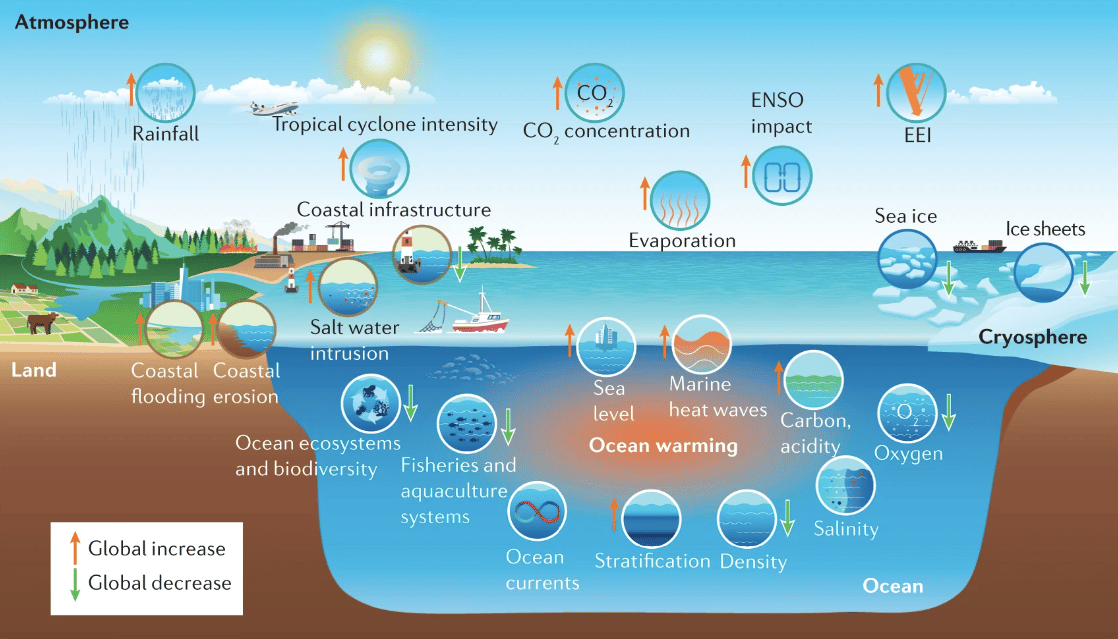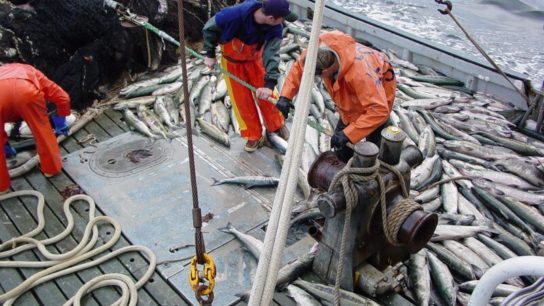A new study revealed that the amount of ocean heat that has accumulated in the top 2km has doubled since the 1960s. Warmer waters have widespread consequences on marine biodiversity and intensify extreme weather events.
—
Our oceans are warming up at an alarming rate. In little over 60 years, the amount of heat accumulating in the world’s oceans has doubled, threatening marine life and fueling climate change, thus making extreme weather events more likely and powerful.
The findings were revealed in a review released on Tuesday in the scientific journal Nature. The fifteen scientists behind the research suggested that ocean heat has “extensive impacts” on both marine ecosystems and society. Aquatic habitats including coral reefs are threatened by this phenomenon, which is also diminishing the oceans’ capability to act as a carbon sink, meaning absorbing carbon from the atmosphere and storing it underwater.
You might also like: 5 Coral Reefs That Are Currently Under Threat and Dying
But the consequences of increasing ocean heat do not stop there. Ocean warming is a key component of the Earth’s system, bridging key climate cycles and driving changes in the system’s processes and components. As waters heat up, several systems are compromised.

The linkage between ocean warming and multiple observed changes in the Earth system. Orange upward arrows indicate a global increase in the particular process, and green downward arrows a global decrease. (source: Nature)
According to the review, ocean warming accounts for more than one-third of global-mean sea level rise through thermal expansion, a phenomenon which, in turn, increases the threats to coastal infrastructures and habitats due to saltwater intrusion, coastal erosion, and flooding. One author of the report said that the current floods in eastern Australia have likely partly been made worse by ocean heat.
“Ocean warming is already causing flooding rains, melting ice and rising sea levels, as well as damaging coral reefs and ecosystems,” said Professor Matt England, a review co-author and oceanographer at the University of New South Wales. “Without emissions reductions, this is only going to get much worse.”
Greenhouse gases in the atmosphere are responsible for nearly 90% of ocean heat and even under the most ambitious scenario for greenhouse gas emissions reduction, the water temperature is expected to “at least double” from current levels by the end of the century, the review suggested.
You might also like: The ‘Evil Twin’ of Global Warming: What is Ocean Acidification?


















